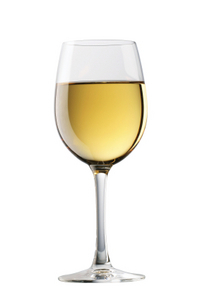Archives
September 2019
June 2019
May 2019
January 2019
August 2018
April 2018
March 2018
August 2017
May 2017
October 2016
July 2016
April 2016
October 2015
February 2015
December 2014
September 2014
July 2014
June 2014
May 2014
April 2014
October 2013
September 2013
August 2013
July 2013
June 2013
April 2013
March 2013
January 2013
December 2012
November 2012
October 2012
September 2012
August 2012
June 2012
May 2012
03 June 2013
What you should know about the wine you drink!
 Many people are willing to try a new wine but when they try to recall it later all they can come up with is a vague memory of what the bottle's label looked like. I can't tell you how many times I've had people walk into my shop and say, "I had this great wine last week. It was white and the label had a blue dog, or a white dog on a bluish background..." No matter how individual a label may seem when it's sitting on your kitchen counter, when you go to the shop all of the hundreds of labels look disturbingly similar. Marketing people still claim that many of us buy wine based upon how the label looks - that may be true and there is a lot of money spent on designing interesting labels - but label design is no way to remember a wine.
Many people are willing to try a new wine but when they try to recall it later all they can come up with is a vague memory of what the bottle's label looked like. I can't tell you how many times I've had people walk into my shop and say, "I had this great wine last week. It was white and the label had a blue dog, or a white dog on a bluish background..." No matter how individual a label may seem when it's sitting on your kitchen counter, when you go to the shop all of the hundreds of labels look disturbingly similar. Marketing people still claim that many of us buy wine based upon how the label looks - that may be true and there is a lot of money spent on designing interesting labels - but label design is no way to remember a wine.Many people are willing to try new wines, but when they try to recall what exactly it was, they struggle. Often, the only thing people can remember is kind of what they label looked like. There are plenty of people who find themselves heading over to a wine store and describing the wines label that they enjoyed, which can be a headache for a shop keeper to try and recall. Quite often, a wine is judged on its label – which is not in any way the correct way to go about judging and remembering wines.
How to remember that wine that you liked
To start, take a moment with your first few sups to really take notice on how it looks smells and tastes. Is it bright or dark when in the glass? Clean or intriguing and powerful in aroma? Clear and fresh? Fruity? Tart? Is it rich and full bodied? Does it last long on the taste buds? You need to make the most of your senses to allow you to get the real experience of wine. The average person can actually distinguish about 10,000 distinct aromas and the olfactory bulb feeds those sensations of smell directly into the sections of the brain that governs memory and emotion. On a basic level, we only consider the basic aroma and tastes, which can be extremely enjoyable, but can be further explored with a more considerate approach to wine drinking.
Consider this when choosing and drinking wine
You should look past the marketing materials of the promotion of the wine, into what actually makes up the wine.
• What grape type is used to make the wine?
Most labels today reveal the grape type on the labels. There are thousands of different grape types used to make wine all over the world, each offering different aromas and tastes. Take not of what grapes make up the wines that you like to aid you in trying more wines later on down the line.
• Where does the wine come from?
All labels explain this. Remembering where a wine has been made is important, as you are able to compare and contrast different regions and types when you have tried a solid range. This enables you to decide which wines are most suited to your taste buds, and why.
• Who made the wine?
Winemakers are equipped and experienced in making certain wines, so often it makes sense to try and get the best wine from the appropriate wine maker. Certain areas are not suited to making certain types of wine, so it will reflect a poor taste, over somewhere that has the conditions (climate, soil, experience… etc) to create a much better bottle of wine.
Aside from the obvious wines that we can buy, taste, drink and enjoy for any occasion, there is becoming more and more awareness of the availability of low sulphite wines and natural wines online, which have been proven to be healthier and also suited to those 1 in 10 people that suffer from a sulphite allergy (but may not even know it). These wines can generally be said to taste just as good – if not better than other wines, and given their much more meticulous winemaking process, have much more care, time and passion put into every bottle, so you know you’re drinking the end product of someone’s passions and hard work, over a standard bottle of cheap wine with loads of additives.